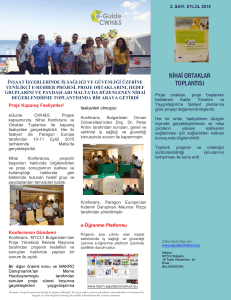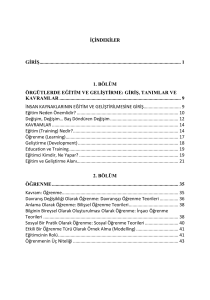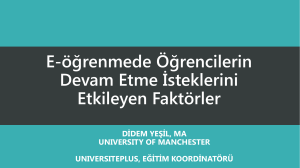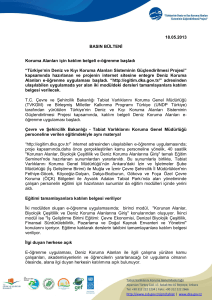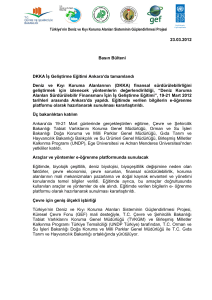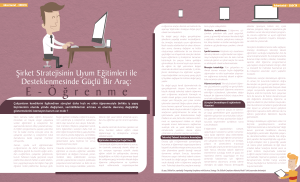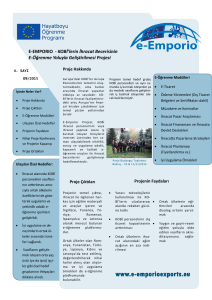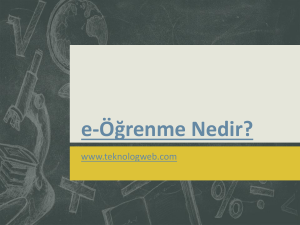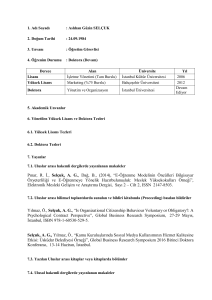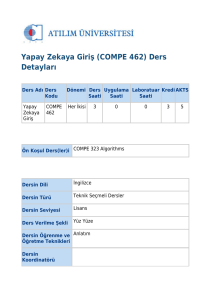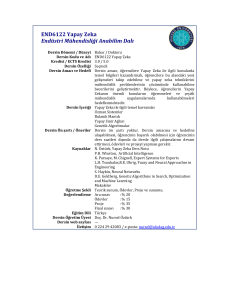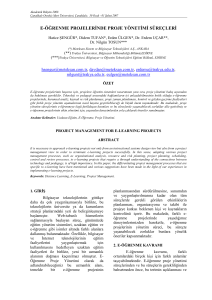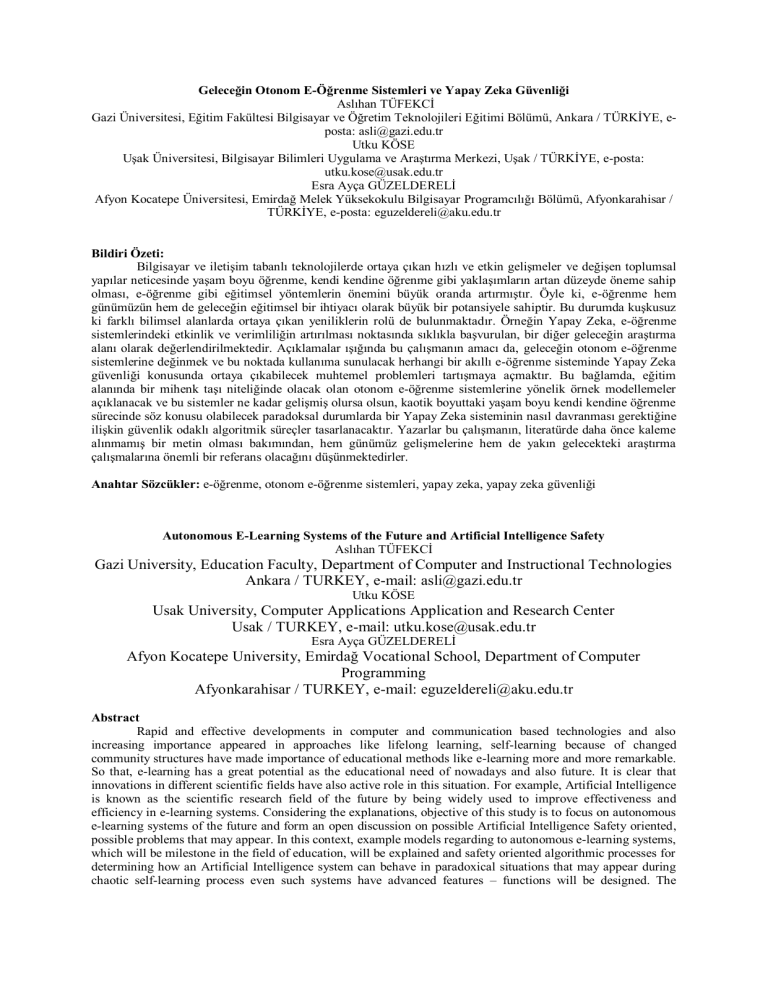
Geleceğin Otonom E-Öğrenme Sistemleri ve Yapay Zeka Güvenliği
Aslıhan TÜFEKCİ
Gazi Üniversitesi, Eğitim Fakültesi Bilgisayar ve Öğretim Teknolojileri Eğitimi Bölümü, Ankara / TÜRKİYE, eposta: asli@gazi.edu.tr
Utku KÖSE
Uşak Üniversitesi, Bilgisayar Bilimleri Uygulama ve Araştırma Merkezi, Uşak / TÜRKİYE, e-posta:
utku.kose@usak.edu.tr
Esra Ayça GÜZELDERELİ
Afyon Kocatepe Üniversitesi, Emirdağ Melek Yüksekokulu Bilgisayar Programcılığı Bölümü, Afyonkarahisar /
TÜRKİYE, e-posta: eguzeldereli@aku.edu.tr
Bildiri Özeti:
Bilgisayar ve iletişim tabanlı teknolojilerde ortaya çıkan hızlı ve etkin gelişmeler ve değişen toplumsal
yapılar neticesinde yaşam boyu öğrenme, kendi kendine öğrenme gibi yaklaşımların artan düzeyde öneme sahip
olması, e-öğrenme gibi eğitimsel yöntemlerin önemini büyük oranda artırmıştır. Öyle ki, e-öğrenme hem
günümüzün hem de geleceğin eğitimsel bir ihtiyacı olarak büyük bir potansiyele sahiptir. Bu durumda kuşkusuz
ki farklı bilimsel alanlarda ortaya çıkan yeniliklerin rolü de bulunmaktadır. Örneğin Yapay Zeka, e-öğrenme
sistemlerindeki etkinlik ve verimliliğin artırılması noktasında sıklıkla başvurulan, bir diğer geleceğin araştırma
alanı olarak değerlendirilmektedir. Açıklamalar ışığında bu çalışmanın amacı da, geleceğin otonom e-öğrenme
sistemlerine değinmek ve bu noktada kullanıma sunulacak herhangi bir akıllı e-öğrenme sisteminde Yapay Zeka
güvenliği konusunda ortaya çıkabilecek muhtemel problemleri tartışmaya açmaktır. Bu bağlamda, eğitim
alanında bir mihenk taşı niteliğinde olacak olan otonom e-öğrenme sistemlerine yönelik örnek modellemeler
açıklanacak ve bu sistemler ne kadar gelişmiş olursa olsun, kaotik boyuttaki yaşam boyu kendi kendine öğrenme
sürecinde söz konusu olabilecek paradoksal durumlarda bir Yapay Zeka sisteminin nasıl davranması gerektiğine
ilişkin güvenlik odaklı algoritmik süreçler tasarlanacaktır. Yazarlar bu çalışmanın, literatürde daha önce kaleme
alınmamış bir metin olması bakımından, hem günümüz gelişmelerine hem de yakın gelecekteki araştırma
çalışmalarına önemli bir referans olacağını düşünmektedirler.
Anahtar Sözcükler: e-öğrenme, otonom e-öğrenme sistemleri, yapay zeka, yapay zeka güvenliği
Autonomous E-Learning Systems of the Future and Artificial Intelligence Safety
Aslıhan TÜFEKCİ
Gazi University, Education Faculty, Department of Computer and Instructional Technologies
Ankara / TURKEY, e-mail: asli@gazi.edu.tr
Utku KÖSE
Usak University, Computer Applications Application and Research Center
Usak / TURKEY, e-mail: utku.kose@usak.edu.tr
Esra Ayça GÜZELDERELİ
Afyon Kocatepe University, Emirdağ Vocational School, Department of Computer
Programming
Afyonkarahisar / TURKEY, e-mail: eguzeldereli@aku.edu.tr
Abstract
Rapid and effective developments in computer and communication based technologies and also
increasing importance appeared in approaches like lifelong learning, self-learning because of changed
community structures have made importance of educational methods like e-learning more and more remarkable.
So that, e-learning has a great potential as the educational need of nowadays and also future. It is clear that
innovations in different scientific fields have also active role in this situation. For example, Artificial Intelligence
is known as the scientific research field of the future by being widely used to improve effectiveness and
efficiency in e-learning systems. Considering the explanations, objective of this study is to focus on autonomous
e-learning systems of the future and form an open discussion on possible Artificial Intelligence Safety oriented,
possible problems that may appear. In this context, example models regarding to autonomous e-learning systems,
which will be milestone in the field of education, will be explained and safety oriented algorithmic processes for
determining how an Artificial Intelligence system can behave in paradoxical situations that may appear during
chaotic self-learning process even such systems have advanced features – functions will be designed. The
authors believe that this study will be a remarkable reference for both today’s developments and research works
in the near future as being a text, which has not been written yet.
Keywords: e-learning, autonomous e-learning systems, artificial intelligence, artificial intelligence safety

